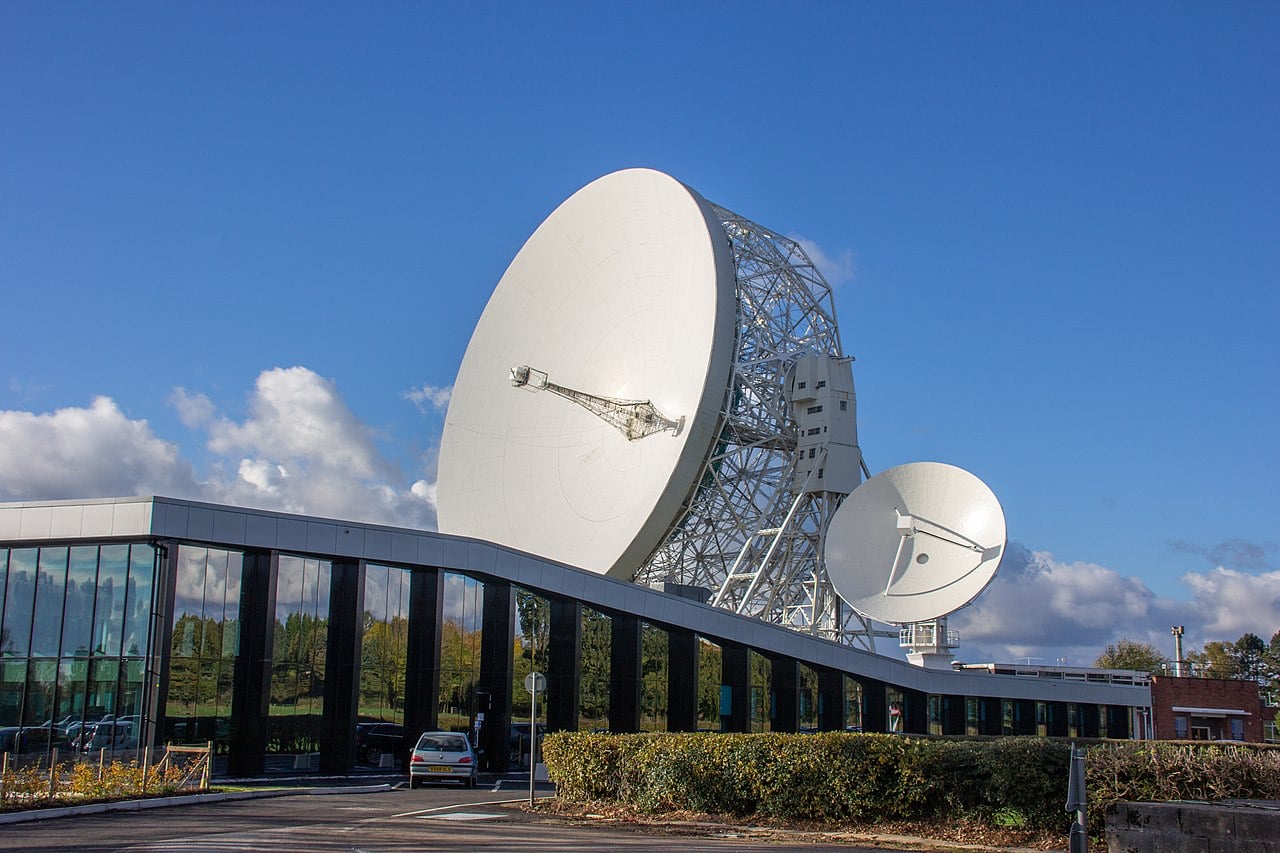The Jodrell Bank Observatory which has been assisting the University of Manchester and hosting the huge Lovell Telescope, as well as a few others, has been declared a UNESCO World Heritage Site, the BBC News reported on Sunday.
The decision was made during a UN World Heritage Committee meeting that took place in Azerbaijan, providing protection for the site under international treaties. That said, the Jodrell Bank Observatory will join other protected heritage sites such as the Iraqi city of Babylon, Yellowstone National Park, the Great Barrier Reef, the Great Wall of China, Stonehenge, the Taj Mahal and Macchu Picchu.
The observatory was founded in 1945 by physicist and radio astronomer Bernard Lovell; hence the largest telescope in the observatory is bearing his name. The Lovell telescope measures 250 feet in diameter, and according to the report in The Guardian it weighs 3,200 tons. At its time, it was considered the world’s largest steerable radio telescope, while right now, it is ranked as the third.
Aside from its contributions during the Cold War, Lovell was also the only telescope which could track Sputnik 1’s carrier rocket, and is considered one of the most important research properties throughout the history of radio astronomy.
According to the BBC: Jodrell Bank “was on standby as the UK’s early warning system against any potential nuclear attack during the 1962 Cuban Missile Crisis,” tracked the Luna 9 spacecraft as it made the first soft landing on the lunar surface in 1966, and has been featured in “the BBC’s Stargazing Live series, Douglas Adams’ Hitchhiker’s Guide to the Galaxy and Doctor Who.” It also is home to the headquarters of the Square Kilometre Array, an effort to build a massive radio telescope by linking thousands of sites across Africa and Australia.
The Jodrell Bank Observatory has been awaiting World Heritage Site status since 2010, when the UK first filed an application to put it on the nomination shortlist, according to the BBC. It was to qualify with the criteria of “a masterpiece of human creative genius.”
UK heritage minister Rebecca Pow told the Guardian that the Jodrell Bank Observatory will ensure that this significant site will continue to “inspire young scientists and astronomers all over the world.” She also added that all the research conducted in the institution has changed the way humanity understands the universe.
“This is wonderful news and a great day in the history of Jodrell Bank,” Jodrell Bank Discovery Centre director Teresa Anderson told the Guardian. “It honours the pioneering work of Sir Bernard Lovell and the early scientists here, together with the world-leading research that continues to this day. Receiving this recognition will help us tell their story and the story of the communities connected to the site both across the UK and worldwide.”
Aside from the Observatory, other sites that were declared UNESCO World Heritage sites include eight buildings designed by Frank Lloyd Wright, Portugal’s Royal Building of Mafra and the Sanctuary of Bom Jesus do Monte in Braga, Spain’s Risco Caido and the mountains of Gran Canaria Cultural Landscape, the churches of Russia’s Pskov School of Architecture, and the historic center of the city of Sheki in Azerbaijan.





